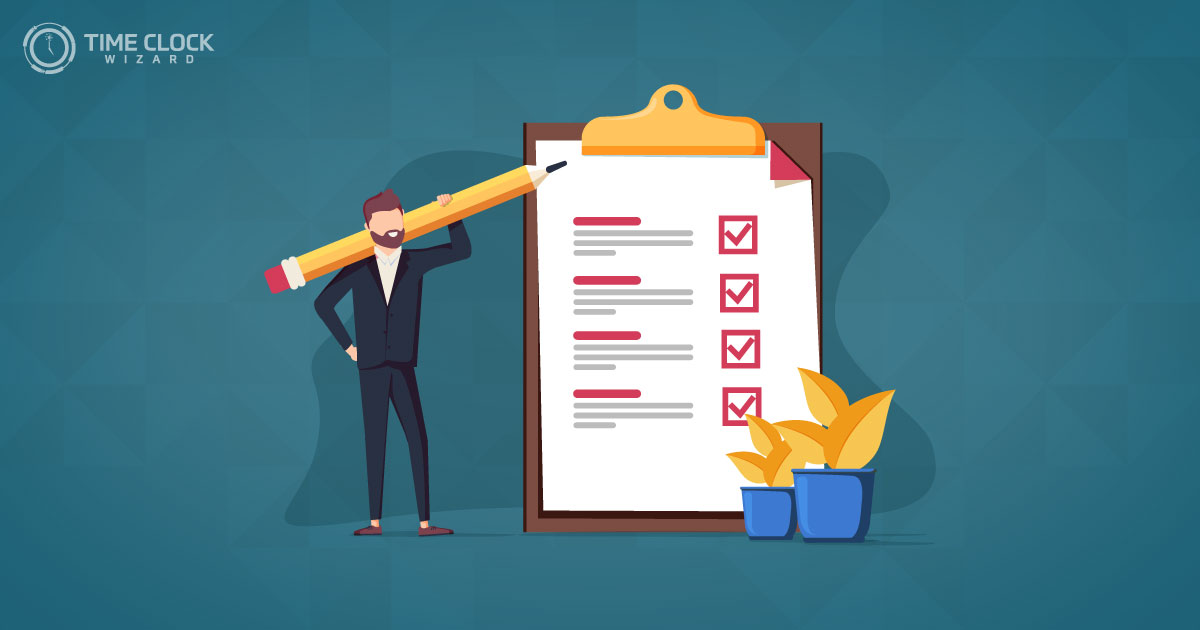
Navigating the minefield of interview questions can be tricky. Whether you’re a seasoned hiring manager or conducting your first job interview, knowing which interview questions are acceptable or unacceptable is crucial. But how do you ensure you’re asking the right questions that comply with legal standards and respect the candidate’s privacy? That’s what we’re here to explore!
In this comprehensive guide, we delve into the world of interview questions, highlighting what to ask and what to steer clear of. This isn’t just about sticking to the rules—it’s about fostering a conversation that’s both informative and respectful. From understanding the basics to tackling the nuances, we’ve got the insights you need to conduct interviews that are both effective and ethical. Are you ready to transform your interviewing approach? Let’s get started! 🚀
Defining Appropriate Interview Questions for Job Applicants
Crafting the right set of interview questions can be a game-changer in your hiring process. It’s essential to ask questions that not only provide insight into the candidate’s capabilities and fit for the role but also comply with legal standards. What sort of questions strike the right balance between being thorough and remaining within legal boundaries?
First off, it’s crucial to focus on job-related inquiries. Questions should be directly connected to the responsibilities and skills associated with the position. For example, asking about someone’s experience with a particular software or management style is typically fair game. However, veering into personal territory, such as marital status or religious beliefs, is not only inappropriate but could also be illegal. Are your current interview questions tailored to the job description or could they use a review for compliance?
Best Practices for Framing Interview Questions
- Ensure questions are job-related and objective.
- Steer clear of personal questions not relevant to job performance.
- Consult legal guidelines when formulating questions.
By sticking to these principles, you not only keep the interview focused on the attributes that truly matter in a candidate’s professional ability but also protect your company from potential legal issues 📏✅. Remember, an interview is not only an evaluation tool for a potential employee but also a reflection of your company’s ethos and respect for compliance.

Exploring Unacceptable and Illegal Interview Topics
When it comes to interviewing, it’s crucial to stay within the bounds of legality and appropriateness. But what exactly constitutes illegal and unacceptable interview topics? It’s not always as clear-cut as one might think. Understanding these boundaries can prevent potential legal issues and foster a more inclusive hiring environment.
Have you ever wondered if a question you’re about to ask a candidate might be crossing the line? Questions about personal life, such as marital status, age, religion, or plans for children, are not just inappropriate—they’re illegal. These questions could be perceived as discriminatory, and they don’t relate to a candidate’s ability to perform the specific job tasks.
Examples of Off-Limits Interview Questions
- Are you married or planning to get married soon?
- How old are you?
- What is your religious affiliation?
- Do you have children or plan to have them?
Focusing on job-related questions isn’t just about legality; it’s about effectiveness. Isn’t it more useful to know how a candidate has handled professional challenges or solved problems in their previous roles? Ask yourself whether the question is relevant to the job requirements and candidate’s skills—this is your litmus test for appropriateness 🧐.
Next time you prepare for an interview, remember to strike any personal questions off your list and focus on those that truly relate to the job. This not only ensures compliance with the law but also allows you to find the best fit for the position based on merit and qualifications. Curious about how to craft such questions? Stay tuned for more on formulating job-specific queries in the sections that follow!
How to Formulate Questions Regarding Work Experience
Crafting the right Interview Questions about a candidate’s work experience can be a tricky balance. You want to gauge their suitability for the role while ensuring you remain within professional and legal boundaries. How do you ensure your questions are pointed and effective without crossing the line?
Start by focusing on the specifics of the job description. What skills and experiences are critical for the role? Frame your questions to draw out relevant examples of past work, such as asking, “Can you describe a project where you utilized ‘X’ skill and how it contributed to your team’s success?” This not only gives insight into their ability but also how they view their contributions within a team setting.
It’s also vital to prepare open-ended questions that encourage candidates to speak freely about their experiences, rather than simply answering ‘yes’ or ‘no’. Questions like, “What challenges did you face in your last position, and how did you overcome them?” open the floor for detailed responses and can provide deeper insights into a candidate’s problem-solving and adaptability skills.
Lastly, always steer clear of questions that could be viewed as discriminatory. Stick to queries that directly relate to the job’s requirements and responsibilities. By maintaining this focus, you ensure fairness and compliance in your hiring process. Are your current interview questions tailored enough to uncover the true potential of your candidates?

Guidelines for Asking About Skills Without Bias
Crafting Interview Questions that evaluate skills without bias is crucial in creating an inclusive environment. But how can you ensure your questions are fair and non-discriminatory? The key lies in focusing on the job requirements and the skills needed to excel.
Begin by defining the essential skills for the position. Instead of asking direct questions that could imply bias, try framing your questions around scenarios or past experiences. For instance, instead of asking if a candidate believes they can handle a fast-paced environment (which can subtly discriminate against older professionals), ask them to describe a time they successfully managed a high-pressure situation.
Skills-Based Question Examples
- Can you walk us through how you tackled a complex project in your last role?
- What strategies have you employed to ensure timely delivery of your tasks?
- Could you give an example of how you’ve used your technical skills to solve a problem?
Remember, the aim is to understand the candidate’s competence and ability to perform job-specific tasks.🎯 Avoid questions that could be interpreted as trying to glean personal information that is not relevant to the job. Have you ensured that your questions are aligned with these guidelines?
Legal Insights: Avoid Discrimination in Interviewing
Navigating the minefield of interview questions requires a deep understanding of what’s legally and ethically acceptable. This segment provides insights on steering clear of discriminatory questions during the recruitment process. Are you fully aware of which questions could unintentionally lead to discrimination?
What Constitutes Discrimination in Interviewing?
Discrimination during interviewing can occur when questions directly or indirectly touch on a candidate’s race, age, gender, religion, marital status, or any other protected characteristic. Incidents can arise from seemingly innocent inquiries that put certain candidates at a disadvantage. For instance, asking about childcare arrangements or religious practices can lead to biased assessment grounds.
Tips to Avoid Discriminatory Practices
- Stick to questions that are job-related and necessary for assessing a candidate’s ability to perform the job duties.
- Establish a standard set of questions to be asked of all candidates to maintain consistency and fairness in assessing qualifications.
- Train interviewers on what constitutes illegal or inappropriate questions and the consequences of discrimination.
Common Questions
What are the common questions asked in an interview?
Common questions in an interview typically aim to assess the applicant’s qualifications, motivation, and fit for the position. Questions often include inquiries like ‘Tell me about yourself,’ which gives candidates the chance to present their personal and professional backgrounds in a narrative form. ‘Why do you want to work here?’ helps interviewers understand the applicant’s interest in the specific company or role. ‘What are your strengths and weaknesses?’ is another conventional question that allows the interviewer to evaluate the candidate’s self-awareness and honesty. These questions help determine whether a candidate is suited for the position and its challenges.
What is the star method when interviewing?
The STAR method is a structured manner of responding to behavioral interview questions by discussing the specific Situation, Task, Action, and Result of the situation you are describing. This method is used by interviewees to give clear, concise, and organized answers. It helps highlight specific experiences and problems solved during past employment that are pertinent to the position being applied for. By using the STAR method, candidates effectively illustrate their skills and abilities in context, which helps interviewers better understand how the candidate might perform in the job.
What are the 30 most common interview questions and answers?
It’s comprehensive to provide all 30, but some of the most common interview questions include ‘What are your career goals?’, ‘How do you handle stress and pressure?’, and ‘What motivates you?’. Answers will vary widely based on the specific job and industry but generally should reflect the candidate’s understanding of the role, their professionalism, and how their experiences align with the job duties. An effective response might involve discussing personal strategies for stress management, reflecting genuine motivation aligned with company goals, and expressing long-term career plans that relate to the opportunities the company offers.
What’s the best interview question to ask?
One of the best interview questions that an employer can ask to get a deep insight into a candidate’s professional aptitude and potential cultural fit is, ‘Can you tell me about a time you overcame a significant challenge at work?’. This question not only reveals the candidate’s problem-solving and critical-thinking skills, but also their resilience and ability to navigate workplace challenges. It provides a frame for the candidate to showcase their skills, adaptability, and determination, as well as to demonstrate how they can contribute to the company in facing and overcoming future challenges.
Best Practices in Structuring Interview Questions
Crafting the right interview questions is crucial for unearthing the true potential of your candidates while ensuring compliance with legal standards. Are you uncertain about how to structure questions that are both effective and appropriate?
First and foremost, clarity is key. Each question should be clearly formulated to elicit relevant information about the candidate’s experience, skills, and cultural fit. Avoid overly complicated or vague questions that could be misinterpreted or lead to biased responses.
Focus on Open-Ended Questions
Opt for open-ended questions that encourage detailed responses rather than simple yes or no answers. For instance, instead of asking, “Have you managed a team?”, consider, “Can you tell me about a time when you led a team to achieve a specific goal?” This approach not only garners more comprehensive information but also allows the candidate to share their achievements and problem-solving skills.
Ensure Relevance to the Position
Every question you ask should have a clear connection to the job’s requirements. Straying into personal territories not related to job performance is not only inappropriate but could also be illegal. Focus on qualifications and experiences that directly impact job performance. Why risk stepping into dangerous territory when you can steer the conversation toward understanding candidate competencies? 🎯
Final Thoughts: Interview Questions: What to Ask and Avoid
As we wrap up, remember that navigating the realm of interview questions is not just about figuring out the best candidate, but also about ensuring a fair and legal hiring process. Have you already identified some changes to make in your next interview? Embracing these insights can transform your interviews from just another meeting to a powerful tool for hiring the right talent while staying within legal bounds. 🌟
Keep refining your interviewing tactics, and don’t forget to revisit the guidelines and best practices we discussed. This way, you’ll keep enhancing your skills and ensure your interview questions are both effective and ethical. Here’s to better interviews and finding the perfect match for your team! 🚀





